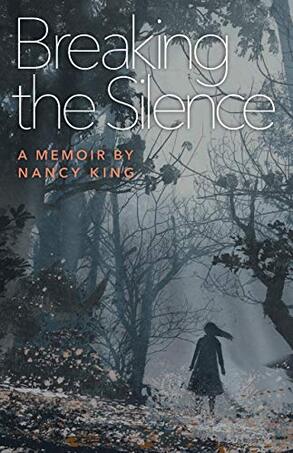|
When I was four, living in New Jersey with my Aunt Ida, Uncle Walter, and cousins Rose and Norman, I was physically and sexually molested by my uncle. Since my bed was in an alcove off their bedroom, and my aunt often woke when my uncle forced me out of my bed during the night, she knew something was wrong but never tried to stop his abuse.
My uncle told me that if I told anyone he would send me away. I was only four. Where would I go? My parents didn’t want me. My uncle said, “Don’t tell.” I didn’t tell. He didn’t say, “Don’t write.”
1 Comment
For years I sat at my desk, and without thought, would write stories that popped out, quasi folk tales that wrote themselves with no prior planning. Sometimes they were long—10-15 pages—I couldn’t stop writing until the story was finished. The problem was: every story contained some form of murderous violence against a child or woman, often sexual, sometimes incest. No matter how I tried, I couldn’t write a story without abuse. I never showed anyone the stories because I was ashamed and embarrassed that I was a “one trick pony,” unable to write more than one theme.
Then, one day, an ex-boyfriend who’d lied to me about having a girlfriend while we were living together, called to ask for a favor. He was openly happy about his new life while I was still suffering. I don’t know if I would have done the favor had I been able, but I was leaving to teach in London the next day so I said no. When we hung up, instead of heading to my bed and going under the covers to tell myself a comforting story, which was my usual response to feeling bad, I went to my desk and with no thought, typed in the words, “Birth of The Storyteller.” I then wrote twelve pages about a young woman who has no name, who is told she is a storyteller and must carry on the family heritage by telling the stories of her grandfather, a renowned storyteller. After her parents die, she leaves her village and begins walking. I had no idea then, and have no explanation now, why I typed in the words, “Birth of The Storyteller,” or how the story emerged. Even at the time I was astonished at what came out, especially because what I wrote had no connection to the conversation with my ex-boyfriend. I’ve always been a storyteller yet there were stories I could not tell, others I tried to tell, but no one wanted to hear them. Editors rejected the memoir I wrote as part of my PhD thesis as “too bleak and troublingly personal.” Agents rejected Morning Light, a novel that was a fictional account of my life, as being too dark. I felt ashamed of who I was and what I’d experienced. To keep going, I created a cheerful, strong persona that helped to disconnect me from the darkness I lived with. I felt emotionally isolated, filled with shame that my life was too grim to talk about.
After returning from the vision quest in 2016, I started writing what I thought would be my sixth novel, only what came out was nonfiction—stories of my life. No matter how I tried, I couldn’t create a character whose life was not mine. It was a struggle similar to the one years ago when every popping out story I wrote was about sexual abuse and violence despite my efforts to write differently. |
Monthly StoriesStories inspired by world tales to challenge and comfort. Archives
July 2024
Categories |
Copyright © Nancy King 2020 | Site Design by Angulo Marketing & Design
|
|
Nancy King is a widely published author and a professor emerita at the University of Delaware, where she has taught theater, drama, playwriting, creative writing, and multidisciplinary studies with an emphasis on world literature. She has published seven previous works of nonfiction and five novels. Her new memoir, Breaking the Silence, explores the power of stories in healing from trauma and abuse. Her career has emphasized the use of her own experience in being silenced to encourage students to find their voices and to express their thoughts, feelings, and experiences with authenticity, as a way to add meaning to their lives.
|




 RSS Feed
RSS Feed